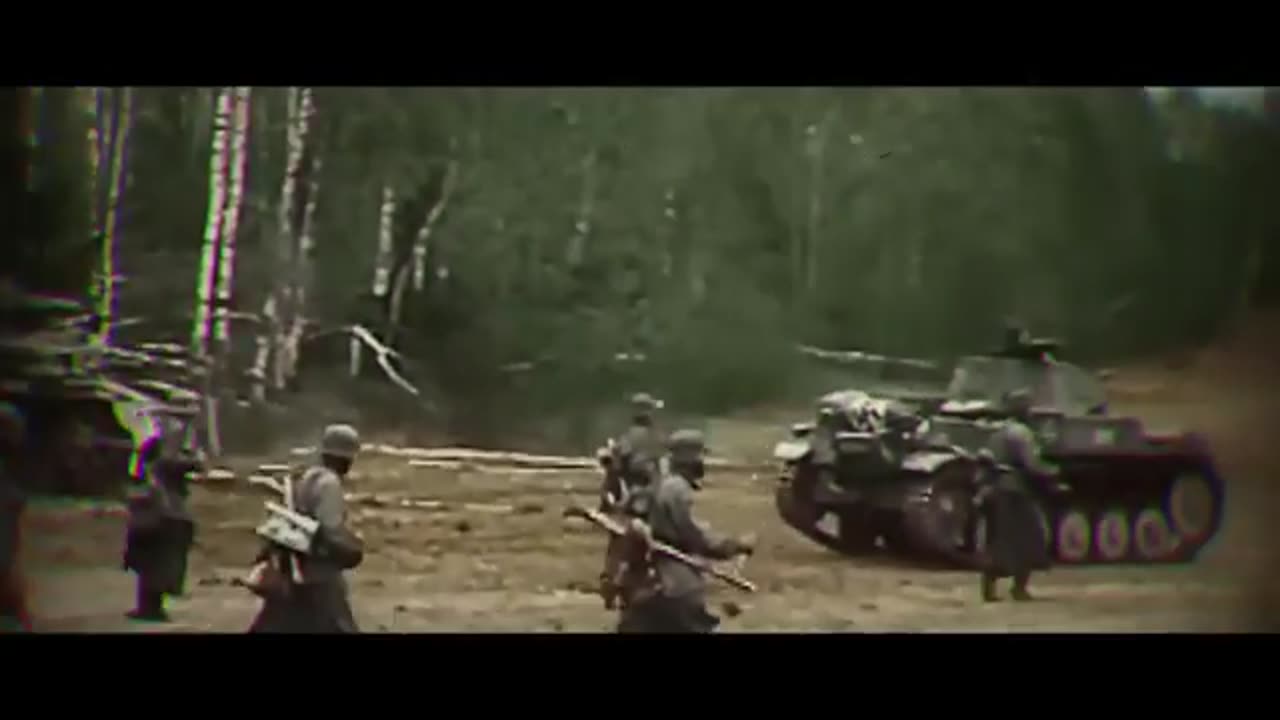Premium Only Content

What They Never Told You About Drugs During WWII
A white pill helped power a lightning war.
In May 1940, German forces surged through the Ardennes with “machine-like” stamina. Inside their pockets: Pervitin—methamphetamine tablets issued by the millions. This documentary uncovers the hidden chemistry of World War II: how stimulants, sedatives, and narcotics shaped strategy, endurance, and catastrophe on every front.
From Berlin labs and pharmacy counters to bomber cockpits, field hospitals, concentration camps, and the Führerbunker, we follow the drug pipeline that kept men awake, dulled pain, and—too often—clouded judgment.
What you’ll learn inside:
How Pervitin was created, mass-marketed, and then militarized—fitting seamlessly into Blitzkrieg doctrine to erase sleep, hunger, and fear.
Why the Wehrmacht and Luftwaffe folded pills into logistics—“Panzer chocolate” for tank crews, stimulant kits for pilots—and the dangerous side effects that followed.
How the Allies responded with Benzedrine for aircrews, routine morphine for medics, and widespread stimulant use that boosted alertness but impaired judgment.
The human cost at the front: manic confidence, hallucinations, crashes after missions, dependency, and command breakdowns as pills became part of the kit.
Atrocity by “research”: SS experiments in camps using stimulants, sedatives, cocaine gums, and brutal “endurance” trials that turned people into data points.
Inside Hitler’s inner circle: Dr. Theodor Morell’s daily injections—stimulants, opioids, tonics—and how chemistry sustained the dictator’s declining health and delusions.
The crash of 1943–45: addiction, shortages, and unraveling discipline as armies that ran on pills hit physiological limits.
The postwar afterlife: Japan’s Philopon crisis, black-market Pervitin in Europe, the Cold War return of “go pills,” and how today’s debates over performance enhancers echo the 1940s.
This film is for education and remembrance. It presents verified history with empathy for victims and veterans, rejecting glorification of drugs, violence, and hate. The story of WWII drugs isn’t about excuses—it’s about consequences when science is bent to ideology and people are treated as machines.
-
 29:24
29:24
Glenn Greenwald
2 hours agoSen. Rand Paul on Venezuela Regime Change, the New War on Drugs, MAGA Rifts, and Attacks from Trump | SYSTEM UPDATE #539
23.8K34 -
 LIVE
LIVE
Dr Disrespect
9 hours ago🔴LIVE - DR DISRESPECT - BATTLEFIELD 6 - REDSEC DUOS - WIN WIN WIN
1,318 watching -
 1:01:44
1:01:44
BonginoReport
3 hours agoHalf Naked Trucker Nabbed In Traffic Stop - Nightly Scroll w/ Hayley Caronia (Ep.166)
81.8K67 -
 LIVE
LIVE
The Jimmy Dore Show
2 hours agoCandace Owens NOT BUYING TPUSA’s Mikey McCoy Defense! Israel WON’T STOP Breaking Gaza Ceasefire!
6,476 watching -
 LIVE
LIVE
SpartakusLIVE
2 hours agoNEW - REDSEC Battle Royale || The Duke of Nuke CONQUERS ALL
111 watching -
 LIVE
LIVE
Mally_Mouse
10 hours ago📣Telescreen Talks - LIVE!
146 watching -
 LIVE
LIVE
Quite Frankly
6 hours agoAggressive Texting, Practice Citizenship Test, Fed vs Fed | 10/29/25
370 watching -
 LIVE
LIVE
Blabs Games
1 hour agoLet's Get Funky - Jurassic World Evolution 3 Stream #2
106 watching -
 LIVE
LIVE
Putther
1 hour ago🔴BILLY ANDERSON RETURNS!
40 watching -
 LIVE
LIVE
The Mike Schwartz Show
3 hours agoTHE MIKE SCHWARTZ SHOW Evening Edition 10-29-2025
3,746 watching